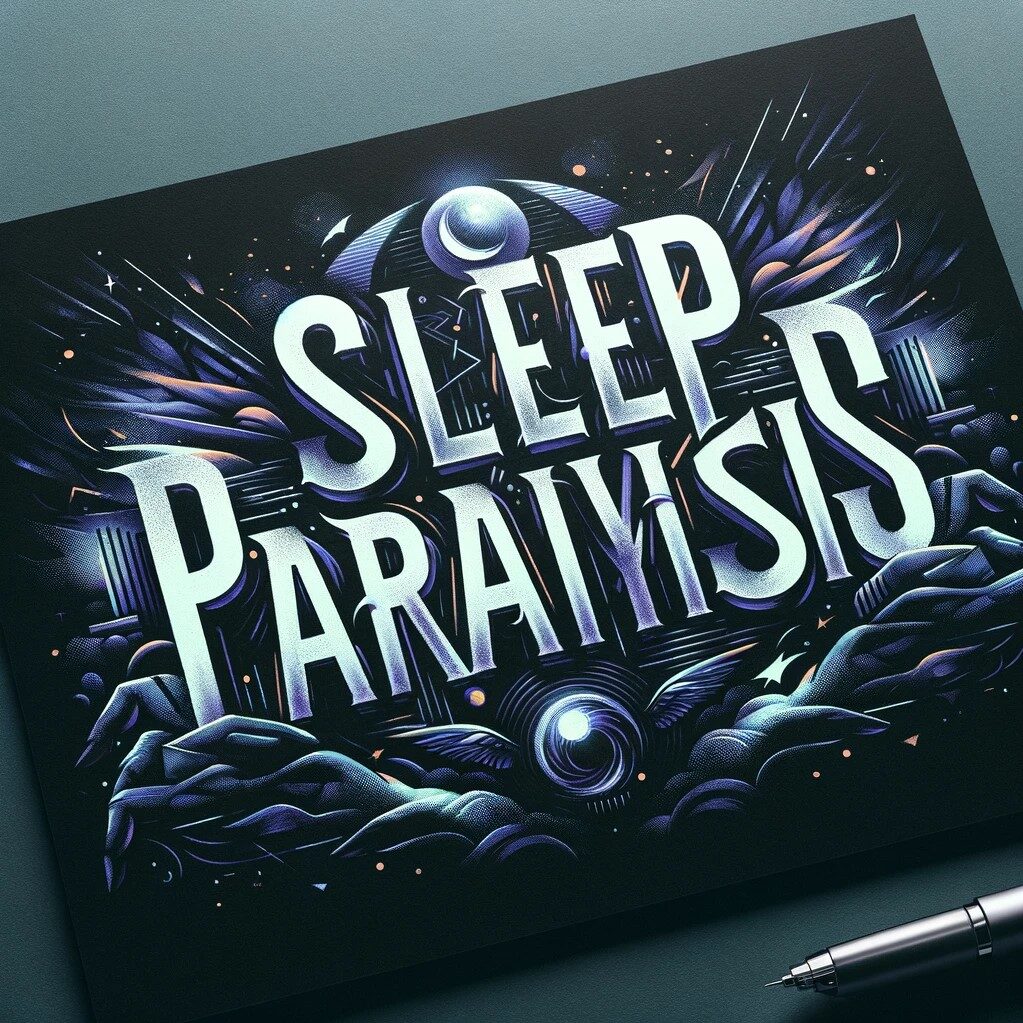Having a good night’s sleep is essential for overall well-being, but for individuals with sleep paralysis, achieving restful sleep can be a challenge. Sleep paralysis is an unsettling phenomenon where a person is temporarily unable to move or speak while falling asleep or waking up. However, there are several effective strategies you can incorporate into your bedtime routine to support a peaceful and uninterrupted sleep, even with sleep paralysis. By making simple adjustments, creating a soothing sleep environment, and practicing relaxation techniques, you can improve the quality of your sleep and wake up feeling refreshed and rejuvenated.

Understanding Sleep Paralysis
What is Sleep Paralysis?
Sleep paralysis is a temporary condition where you are unable to move or speak while transitioning between sleep and wakefulness. It usually occurs when you are falling asleep or waking up, and can last a few seconds to a few minutes. This sleep disorder is often accompanied by vivid hallucinations and a sense of pressure on the chest, making it a distressing experience for those who go through it.
Causes of Sleep Paralysis
Sleep paralysis can be caused by various factors, including sleep deprivation, irregular sleep schedule, disrupted sleep patterns, and certain underlying conditions such as narcolepsy. Stress, anxiety, and sleep disorders like insomnia can also contribute to the occurrence of sleep paralysis.
Symptoms of Sleep Paralysis
Common symptoms of sleep paralysis include the inability to move or speak, a feeling of being awake but unable to move, hallucinations, a sense of pressure or weight on the chest, and experiencing a sense of fear or impending doom during episodes. Some people may also report difficulty breathing or a choking sensation.
Impact on Sleep Quality
Sleep paralysis can significantly impact sleep quality and disrupt the sleep-wake cycle. Fear and anxiety associated with sleep paralysis can lead to difficulty falling asleep or staying asleep, resulting in reduced overall sleep duration. This can lead to daytime sleepiness, fatigue, and a decrease in cognitive function.
Creating a Sleep-Friendly Environment
Comfortable Bed and Pillow
Investing in a comfortable mattress and pillow that properly support your body can make a big difference in improving your sleep quality. Opt for a mattress that suits your preferred sleep position and provides adequate spinal alignment. Similarly, choose a pillow that provides proper neck support to prevent discomfort during sleep.
Dark and Quiet Room
Creating a dark and quiet sleep environment can help promote better sleep with sleep paralysis. Use blackout curtains or blinds to block out external light sources that may disrupt your sleep. Additionally, consider using earplugs or a white noise machine to minimize any noise disturbances that could affect your sleep.
Temperature and Humidity Control
Maintaining a cool and comfortable room temperature can contribute to a better night’s sleep. Aim for a temperature between 60 and 67 degrees Fahrenheit (15 to 20 degrees Celsius), as this range is generally considered optimal for sleep. Also, consider using a humidifier or dehumidifier to ensure the air in your bedroom is at an appropriate level of humidity for sleep.
Eliminating Electronic Distractions
Electronic devices emit blue light, which can interfere with the production of melatonin, the hormone that regulates sleep. Avoid using electronic devices, such as smartphones or laptops, at least one hour before bedtime. If you need to use your phone or tablet, consider using blue light filters or wearing blue light-blocking glasses to minimize the impact on your sleep quality.
Developing a Consistent Sleep Schedule
Establishing a Bedtime Routine
Creating a bedtime routine can signal to your body that it’s time to wind down and prepare for sleep. Choose relaxing activities, such as reading a book, practicing deep breathing exercises, or taking a warm bath, to help calm your mind and body before bed. Stick to this routine consistently to train your body to associate these activities with sleep.
Regular Sleep and Wake Times
Maintaining consistent sleep and wake times, even on weekends, can help regulate your body’s internal clock and promote better sleep quality. Try to go to bed and wake up at the same time every day, including weekends. This consistency reinforces your body’s natural sleep-wake rhythm, making it easier to fall asleep and wake up feeling refreshed.
Avoiding Naps
While naps can be tempting, especially if you’re feeling tired during the day, they can interfere with your ability to fall asleep at night. If you experience sleep paralysis, it’s best to avoid napping during the day to ensure that you’re tired enough for a good night’s sleep. If you must nap, limit it to a short duration and avoid napping late in the day.
Utilizing Relaxation Techniques
Incorporating relaxation techniques into your bedtime routine can help reduce stress and anxiety, making it easier to fall asleep with sleep paralysis. Practicing deep breathing exercises, progressive muscle relaxation, or guided imagery can help relax your mind and body, creating the ideal conditions for a restful night’s sleep.
Managing Stress and Anxiety
Stress Reduction Techniques
Managing stress is crucial for promoting healthy sleep. Engage in stress reduction techniques such as practicing mindfulness, yoga, or journaling. These activities can help calm your mind and allow you to let go of any stress or worries before bedtime. Experiment with different techniques to find what works best for you.
Cognitive Behavioral Therapy
Cognitive behavioral therapy (CBT) is a therapeutic approach that can be effective in treating sleep disorders, including sleep paralysis. CBT aims to identify and address negative thought patterns and beliefs that may contribute to sleep difficulties. Working with a therapist trained in CBT can help you develop coping strategies and improve your sleep quality.
Exercising Regularly
Regular physical activity has been shown to improve sleep quality and overall well-being. Engaging in aerobic exercises, such as walking, jogging, or cycling, can help reduce stress and increase relaxation. However, avoid exercising close to bedtime, as it can increase alertness and make it harder to fall asleep.
Practicing Mindfulness or Meditation
Practicing mindfulness or meditation techniques before bed can help relax your mind and prepare it for sleep. Mindfulness involves focusing on the present moment and accepting it without judgment, while meditation typically involves focusing on a specific object or mantra. These practices can help clear your mind of racing thoughts and promote a sense of calmness conducive to sleep.

Promoting Healthy Sleep Habits
Avoiding Stimulants
Stimulants such as caffeine and nicotine can interfere with your ability to fall asleep and stay asleep. Limit your consumption of caffeine-containing beverages like coffee, tea, and energy drinks, especially in the afternoon and evening. Similarly, avoid smoking or using nicotine products close to bedtime, as nicotine is a stimulant that can disrupt sleep.
Maintaining a Balanced Diet
Eating a balanced diet can positively impact your sleep quality. Avoid heavy or spicy meals close to bedtime, as they can cause indigestion or discomfort that interferes with sleep. Instead, opt for light, nutrient-rich foods that promote relaxation, such as whole grains, lean proteins, and fruits or vegetables.
Regular Physical Activity
Engaging in regular physical activity during the day can promote better sleep at night. Aim for at least 30 minutes of moderate-intensity exercise most days of the week. However, avoid vigorous exercise close to bedtime, as it can increase alertness and make it harder to fall asleep.
Limiting Exposure to Bright Light at Night
Exposure to bright light, especially blue light emitted by electronic devices, can suppress the secretion of melatonin and disrupt your sleep-wake cycle. Minimize exposure to bright light in the evening by dimming lights in your home and avoiding screens before bed. Consider using blackout curtains or wearing an eye mask to block out external sources of light.
Improving Sleep Hygiene
Creating a Comfortable Sleep Environment
Thoughtfully design your sleep environment to maximize comfort and relaxation. Use soft, breathable bedding and choose comfortable sleepwear. Keep your bedroom clean, clutter-free, and at a temperature that suits your preferences. Create a space that promotes calmness and serenity, making it easier to unwind and fall asleep with sleep paralysis.
Limiting Bedroom Activities to Sleep
Reserve your bedroom for sleep and intimate activities only. Avoid working, studying, or engaging in stimulating activities in bed. This helps your brain associate your bed with sleep, enhancing your sleep quality. If you find yourself unable to sleep, get out of bed and engage in a relaxing activity until you feel tired enough to try again.
Limiting Daytime Activities in Bed
Just as you should avoid stimulating activities in bed, it’s also essential to limit daytime activities in bed. If you use your bed for activities like watching TV, working on a laptop, or reading during the day, your brain may associate it with wakefulness rather than sleep. Reserve your bed for sleep-related activities to optimize your sleep hygiene.
Avoiding Using Electronic Devices Before Bed
The blue light emitted by electronic devices can interfere with the production of melatonin, making it harder to fall asleep. Avoid using electronic devices, such as smartphones, tablets, or laptops, for at least one hour before bed. Instead, engage in relaxing activities like reading a book, listening to calming music, or practicing relaxation exercises.
Seeking Medical Advice
Consulting a Healthcare Professional
If you are experiencing frequent episodes of sleep paralysis or if it significantly impacts your daily life, it is advisable to consult a healthcare professional. They can evaluate your symptoms, provide a diagnosis, and offer guidance on managing sleep paralysis and improving sleep quality.
Exploring Medication Options
In some cases, healthcare professionals may prescribe medication to manage sleep paralysis, particularly if it occurs as a symptom of another sleep disorder like narcolepsy. Medications such as antidepressants or anti-anxiety drugs may be prescribed to address underlying conditions contributing to sleep paralysis.
Investigating Sleep Disorders
Sleep paralysis can sometimes be a symptom of an underlying sleep disorder, such as narcolepsy or sleep apnea. If your sleep paralysis episodes are frequent or accompanied by other symptoms like excessive daytime sleepiness or loud snoring, a healthcare professional may recommend a sleep study to evaluate your sleep and identify any underlying disorders.
Considering Therapy or Counseling
Therapy or counseling can be beneficial for managing the emotional impact of sleep paralysis and addressing any underlying stress, anxiety, or trauma. A therapist or counselor can help you develop coping strategies, process any fear or anxiety associated with sleep paralysis, and improve your overall well-being.
Educating Yourself about Sleep Paralysis
Understanding Sleep Paralysis Triggers
Educating yourself about common triggers of sleep paralysis can help you better understand and manage your condition. Stress, sleep deprivation, irregular sleep patterns, and certain medications are known triggers of sleep paralysis. By identifying and avoiding these triggers, you can reduce the frequency and intensity of sleep paralysis episodes.
Learning About Sleep Paralysis Research
Keeping up-to-date with the latest research on sleep paralysis can provide valuable insights into the condition and potential treatment options. Research studies often explore the underlying causes, treatment approaches, and management strategies for sleep paralysis. Stay informed by reading reputable scientific journals or articles dedicated to sleep research.
Joining Support Groups
Connecting with others who experience sleep paralysis can provide a sense of understanding and support. Joining online or in-person support groups allows you to share your experiences, exchange coping strategies, and find comfort in knowing that you are not alone. Hearing other people’s stories can provide validation and help reduce anxiety associated with sleep paralysis.
Reading Books or Articles on Sleep Paralysis
Numerous books and articles are available that delve into the topic of sleep paralysis. These resources can provide in-depth information about the condition, personal anecdotes, and practical tips for managing sleep paralysis. Reading about other people’s experiences and learning about different perspectives can help you feel more empowered and informed about your own sleep paralysis.
Utilizing Sleep Aids
Natural Sleep Aids
Natural sleep aids, such as herbal supplements or relaxation teas, are often used to promote better sleep. Chamomile, valerian root, and lavender are commonly recommended for their calming properties. However, it’s important to consult with a healthcare professional before using any natural sleep aids to ensure they are safe and appropriate for your specific situation.
Over-the-counter Sleep Aids
Over-the-counter sleep aids, such as antihistamines, can be helpful for occasional sleeplessness. These medications can help you fall asleep faster, but they may also cause daytime drowsiness or other side effects. It’s essential to use them sparingly and as directed, as long-term use can lead to dependence or tolerance.
Prescription Sleep Medications
Prescription sleep medications may be prescribed by a healthcare professional for more severe or chronic sleep difficulties associated with sleep paralysis. These medications should be used under medical supervision and only as a short-term solution, as they can carry the risk of dependency or adverse effects.
Homeopathic Remedies
Homeopathic remedies, such as melatonin supplements or Bach flower remedies, are often used as alternative treatment options for sleep difficulties. These remedies are believed to restore balance in the body and promote better sleep, but their effectiveness may vary from person to person. Consult with a healthcare professional to determine the appropriate use of homeopathic remedies.
Monitoring Lifestyle Factors
Tracking Sleep Patterns
Keeping a sleep diary or using a sleep tracking app can help you monitor your sleep patterns and identify potential trends or triggers for sleep paralysis. Record the time you go to bed, the time you wake up, and any notable events during the night or upon waking up. This information can assist healthcare professionals in assessing your sleep quality and making appropriate recommendations.
Identifying Potential Triggers
By tracking your sleep patterns and daily activities, you may be able to identify potential triggers for sleep paralysis. Pay attention to factors such as stress levels, dietary choices, caffeine or alcohol consumption, and changes in medication. Identifying these triggers can help you make necessary lifestyle adjustments to improve your sleep and reduce the occurrence of sleep paralysis.
Logging Daily Activities and Stressors
Keeping a journal of your daily activities and stressors allows you to identify any patterns or connections between your lifestyle and sleep paralysis episodes. Note down any significant events, stressful situations, or emotional experiences throughout the day. This information can guide you in managing stress, making lifestyle changes, and seeking appropriate support or resources.
Adjusting Lifestyle Choices Based on Insights
Once you have identified potential triggers or patterns, you can make informed lifestyle choices to support better sleep with sleep paralysis. For example, if you notice that caffeine consumption in the afternoon affects your sleep, consider limiting or eliminating caffeine later in the day. Use the insights from monitoring your sleep and daily activities to optimize your sleep environment and prioritize self-care practices that promote relaxation and well-being.
In conclusion, understanding sleep paralysis and adopting strategies to improve sleep quality are essential for individuals experiencing this sleep disorder. By creating a sleep-friendly environment, maintaining a consistent sleep schedule, managing stress and anxiety, practicing healthy sleep habits, improving sleep hygiene, seeking medical advice when necessary, educating oneself, utilizing sleep aids appropriately, and monitoring lifestyle factors, individuals can support a good night’s sleep and alleviate the impact of sleep paralysis. Remember, each person’s experience with sleep paralysis is unique, so it’s essential to find a personalized approach that suits your specific needs and preferences. Sweet dreams!

